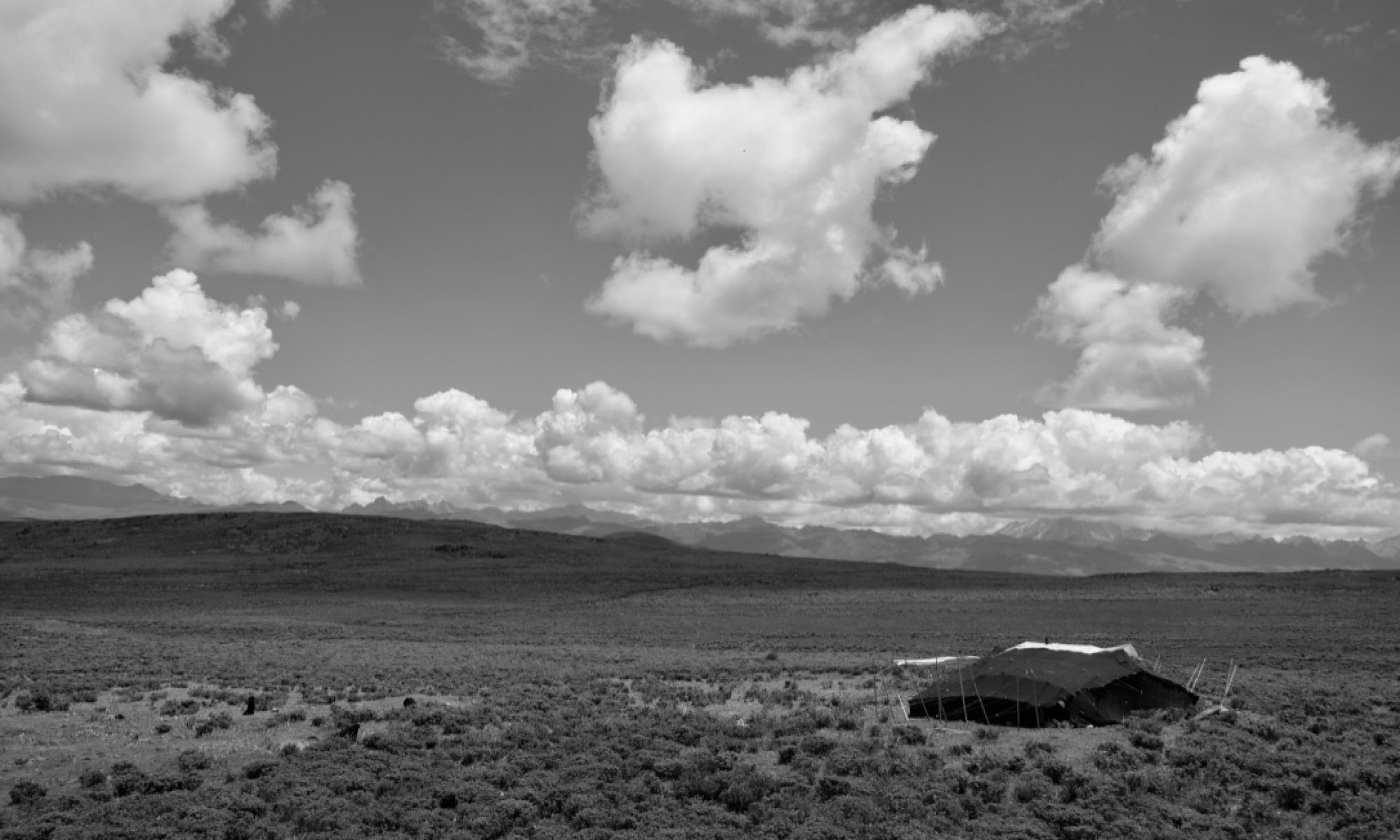Click here to download the article directly from JBE.
I’ve been pounding the keys pretty hard the last few months trying to get my dissertation finished. Hence no new posts since January. Instead of the new blog content I don’t have time to create, however, I thought I would post a link to my first bona-fide, peer-revied academic article, published today by the Journal of Buddhist Ethics. Download a free pdf above, of by clicking here. (Kudos to JBE for posting all of their articles online, and not behind a paywall. No subscriptions or academic affiliations required.)
Abstract:
Tibetan Buddhism idealizes the practice of compassion, the drive to relieve the suffering of others, including animals. At the same time, however, meat is a standard part of the Tibetan diet, and abandoning it is widely understood to be difficult. This tension between the ethical problems of a meat based diet and the difficulty of vegetarianism has not been lost on Tibetan religious leaders, including the eighteenth century master Jigmé Lingpa. Jigmé Lingpa argues repeatedly that meat is a sinful food, incompatible with a compassionate mindset. At the same time, however, he acknowledges the difficulties of vegetarianism, and refuses to mandate vegetarianism among his students. Instead, he offers a variety of practices that can ameliorate the inherent negativity of eating meat. By so doing, Jigmé Lingpa offers his students a chance to continue cultivating compassion without having to completely abandon meat.

As a human species we do have incisor teeth and our basic bodily requirement for food includes meat eating.That being said surely this is a case for adopting the middle way.Personally i eat very little meat due mainly to the cost of it.I am also aware that animals are sentient beings.Farm animals generally have better conditions than if they were simply left to thier own devices.A lot of animals in the wild suffer attack from predators and also disease leading to death in harsh conditions.Whilst we are at the stage of evolution that we occupy at present, we do need to eat meat indeed some folk have no other option.I think if we do eat meat then it should be done mindfully with the utmost respect for the welfare of the animals whilst they are alive.All of us are here to serve and that includes the animals which serve us. A sense of balance needs to be achieved as at the moment huge swathes of the rain forest are being swept aside to provide grass for cattle.Do we really need to meat at every mealtime to me that is way beyond ethical and is probably unhealthy.I respect the views of vegetarians but in my case its just not a practical option.
Interestingly, I’ve heard some Tibetan lamas explain that the shape of our teeth proves we don’t need meat. If we were supposed to eat meat, they say, we would have long canines like carnivores…. Whatever you think of that logic, it seems hard to deny that humans have the capability of eating meat; it doesn’t make us sick, as it would if we were true herbivores. At the same time, I’m not really sure we can extrapolate from that capability to say that we require meat. In any case, kudos for your efforts to reduce your consumption! You might be interested in a short translation I made of a text by Khenpo Tsültrim Lodrö, one of the most important Buddhist leaders in contemporary Kham. Addressing an audience of Tibetan nomads and farmers, he acknowledges the difficulty of a vegetarian diet. If full vegetarianism is not possible, he asks that people try to reduce their consumption. If even that is not possible, he asks that, at a minimum, they slaughter their animals in a humane way.
Click here to download the translation.
Even if you can, can’t, should, shouldn’t – its not about following only the DNA and instinct – compassion is purely about thinking of others welfare and more and more even if you do miss out of some nutrition we can make our decision not to eat others. Its really about the compassionate mindset – if there is some challenge or sacrifice that shouldn’t just mean … don’t do it, its too hard.
Would you apply the same ‘balance’, ‘middle way’, etc. to the consumption of human flesh? Just reduce your consumption, treat the selected humans compassionately, and slaughter them humanely, and all is well.
First off, I feel its worth emphasizing that the article here is about Jigmé Lingpa’s views, which do not necessarily line up with my own!
That said, no, I wouldn’t apply the same reasoning to people, and I don’t think Jigmé Lingpa would either. Jigmé Lingpa, like just about everyone at his time and most modern people, assumed that people were superior to animals. Whatever you or I may personally think of that belief, that’s the context he was writing in. Further, the prevailing norm in eighteenth century Tibet was that meat eating was ok, and we have to look at Jigmé Lingpa’s ideas in that setting. Could he have worded his critiques of meat more strongly? Of course. Just take a look at Shabkar’s writings for some good examples of no holds barred meat-bashing. The thing that makes Jigmé Lingpa interesting to me, however, is the way he tries to reconcile these two different positions: Tibetan meat eating on the one hand and Buddhist ethical claims on the other.